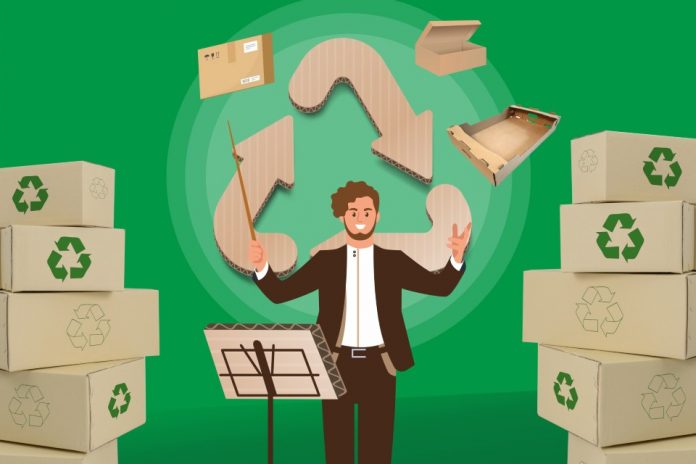Sustainability and environmental protection are highly important concepts for 85 percent of Romanians. At the same time, only 7 percent believe enough is being done regarding recycling, and 6 out of 10 Romanians wish to do more than they currently do. These are some of the conclusions of a study conducted by ROMPAP – The Pulp and Paper Industry Association, in collaboration with the research institute Ipsos Romania.
The survey, conducted in April, was carried out nationwide and highlights some interesting aspects: over 90 percent of Romanians are very familiar or fairly familiar with the concepts of recycling, reusable packaging, selective collection, or plastic pollution. On the other hand, 56 percent believe too little is being done when it comes to recycling.
Paul-Henri Kohler, President of ROMPAP, stated: “We wanted to better understand consumers – what concerns them, what motivates them, what arguments and barriers they encounter when it comes to sustainability. This study, conducted with Ipsos, is an extremely valuable material for our industry. Even though the figures are encouraging, a team effort is needed at the national level to reach the goals we all desire. ROMPAP member companies will continue to support the adoption of efficient policies so that Romanians can make informed choices, preferring less polluting packaging and having access to more facilities for selective collection and recycling.”
6 out of 10 respondents state that the responsibility for recycling belongs to each citizen, with the participation of municipalities (55 percent), sanitation companies (50 percent), and the government (47 percent). On the other hand, only 26 percent of respondents consider schools to have an important role by informing younger generations about correct behaviors.
When asked about the environmental impact of certain types of packaging, 78 percent of respondents stated that plastic items are more polluting than paper/cardboard ones. Replacing plastic packaging with biodegradable alternatives is seen as a solution by 34 percent of Romanians, while 1 in 4 believe the solution is replacing plastic packaging with paper or cardboard. On a personal level, more than half of the respondents (52 percent) are very willing to give up using plastic packaging in favor of more sustainable options such as cardboard or paper. 45 percent of interviewed Romanians consider that recycling paper/cardboard is very important to them. Half of the study participants believe that paper/cardboard packaging is as attractive as plastic packaging. One in two consumers declares that between two similar products at the same price, they prefer paper/cardboard packaging over plastic.
More than half of Romanians pay attention to selective waste collection. Plastic is the most frequently collected material (92 percent), followed by glass (75 percent) and paper/cardboard (70 percent). The motivations behind this behavior are related to reducing pollution and negative environmental impact, responsibility towards the planet, and ensuring a more sustainable future for future generations. The main barriers to selective collection are the lack of access to proper facilities (48 percent), lack of storage space at home (38 percent), or the belief that selectively sorted waste ends up in the landfill (35 percent).
Most respondents believe there is a need for nationwide selective collection facilities. Sanitation companies could play an important role by purchasing compartmentalized vehicles, which would guarantee that selectively collected waste does not end up mixed at the landfill. Lastly, communication campaigns that provide complete and detailed information about selective collection and the recycling process for each material would be beneficial. Moreover, the involvement of central and local authorities in initiating distinct programs targeting cardboard recycling could contribute to generalizing sustainable behavior among the population and support Romania in achieving the agreed European targets. The need for specific campaigns is even more pronounced as 40 percent of study participants say they have never received information about the types and condition of recyclable materials/packaging in their area, and 55 percent declare they would like to have more information about sustainability, environmental protection, and recycling.




